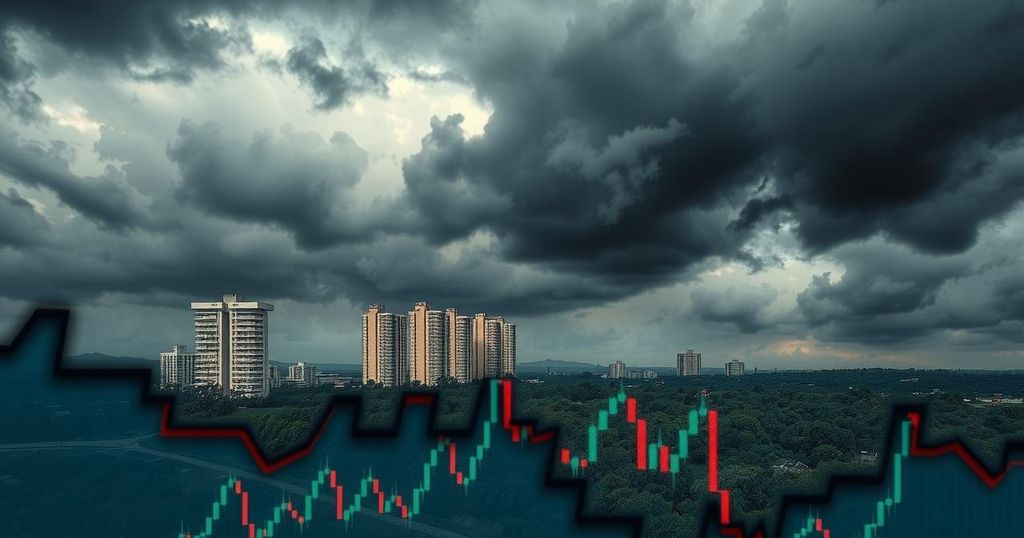The recent U.S.-Venezuela policy fluctuations are causing volatility in Venezuela’s bond market, impacting a $60 billion debt restructuring. Government bonds have oscillated between gains and losses following announcements from Trump and Maduro, with some investors hopeful for normalization of relations despite setbacks. This year, bonds due in 2027 have surged significantly, although uncertainty persists in light of changing political dynamics.
Recent fluctuations in U.S.-Venezuela policy have led to increased volatility in the Venezuelan bond market, with investors reassessing their positions on a crucial $60 billion debt restructuring. Venezuelan government bonds, which have been in default since 2017, experienced significant swings in their values, driven by announcements from both U.S. President Donald Trump and Venezuelan President Nicolas Maduro. A recent agreement by Venezuela to restart repatriation flights was perceived as a concession to the U.S. focus on Latin American migration, which boosted bond performance for three consecutive days.
Despite these positive developments, the market remains uncertain, with bonds due in 2027 rising more than 17% this year, significantly outperforming an index tracking emerging-market high-yield debt. Investor optimism is tied to expectations that Trump’s approach toward Maduro will soften, enabling the country to pursue normalization of its international relations. Trump’s decision to end the Biden-era oil deal with Chevron, which allowed oil extraction in Venezuela, shocked the market yet the bond prices have not fully fallen back, indicating continued investor hope.
The arrival of Trump in the White House renewed optimism among investors viewing Venezuelan bonds, particularly those linked to the state oil company, as potential opportunities. Following a deal brokered in January by U.S. envoy Richard Grenell, which resulted in the release of American prisoners, bond prices surged to near their highest in a year. However, Trump’s recent revocation of Chevron’s license caused a halt to this rally, stabilizing bond prices around 19 cents on the dollar as market participants awaited clearer outcomes from political developments.
Barclays has maintained a market-weight recommendation on these debts, highlighting challenges in predicting political shifts. Jason Keene from Barclays noted Trump’s flexibility and potential to change positions, suggesting a possible future deal with Venezuela. Additionally, positive trends in other emerging markets like Lebanon are further encouraging investments in Venezuelan bonds, which are perceived as inexpensive by comparatives. Francesco Marani from Auriga Global Investors remains confident that normalization remains the probable outcome despite ongoing geopolitical tensions.
In summary, shifts in U.S.-Venezuela policy are creating notable fluctuations in the Venezuelan bond market, leading investors to reevaluate opportunities amid a complex $60 billion debt restructuring. While some bonds have enjoyed a significant rally this year, unexpected actions by the Trump administration continue to inject uncertainty. Investor sentiment leans towards a belief in eventual normalization of relations, indicating a cautious but hopeful outlook for the future of Venezuelan bonds.
Original Source: www.livemint.com






